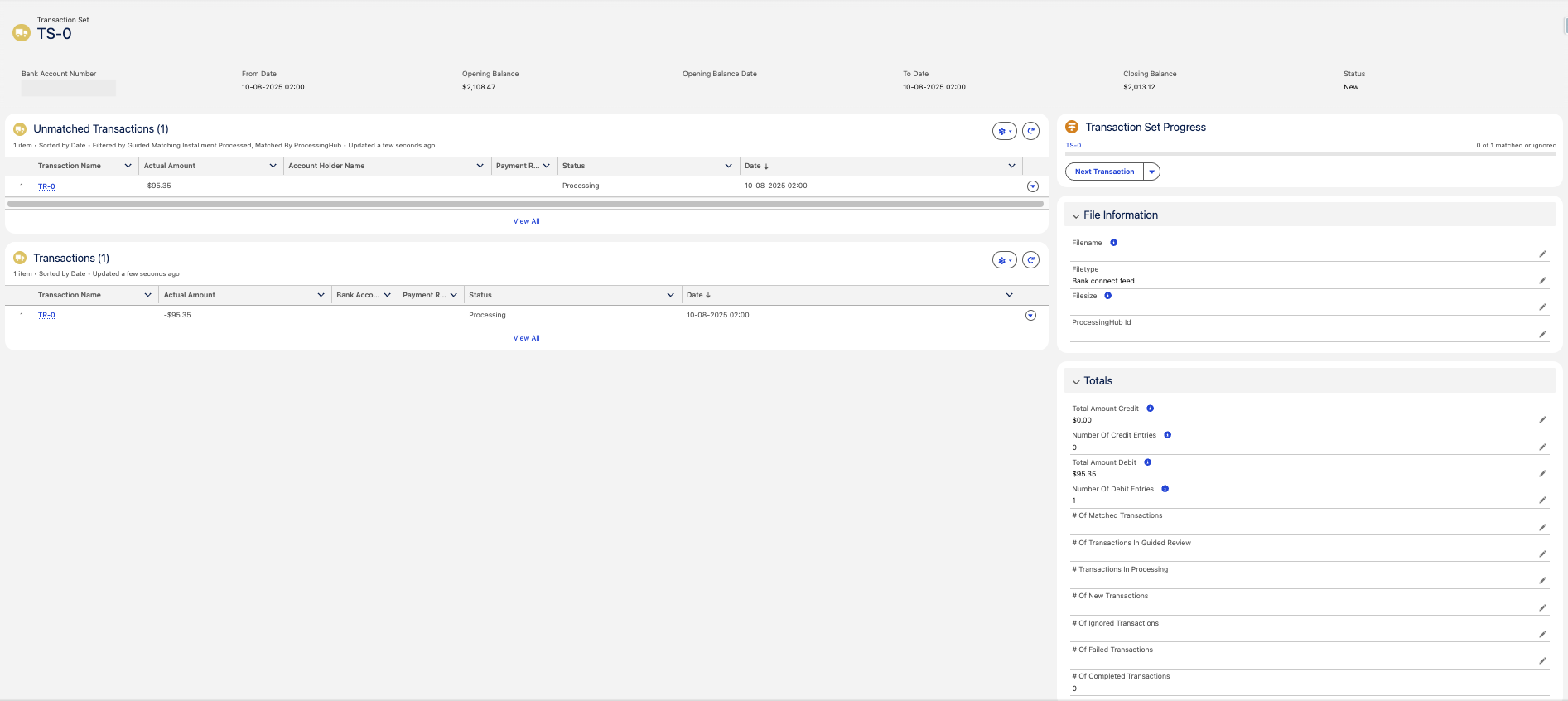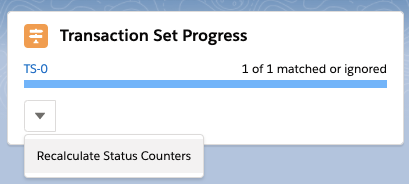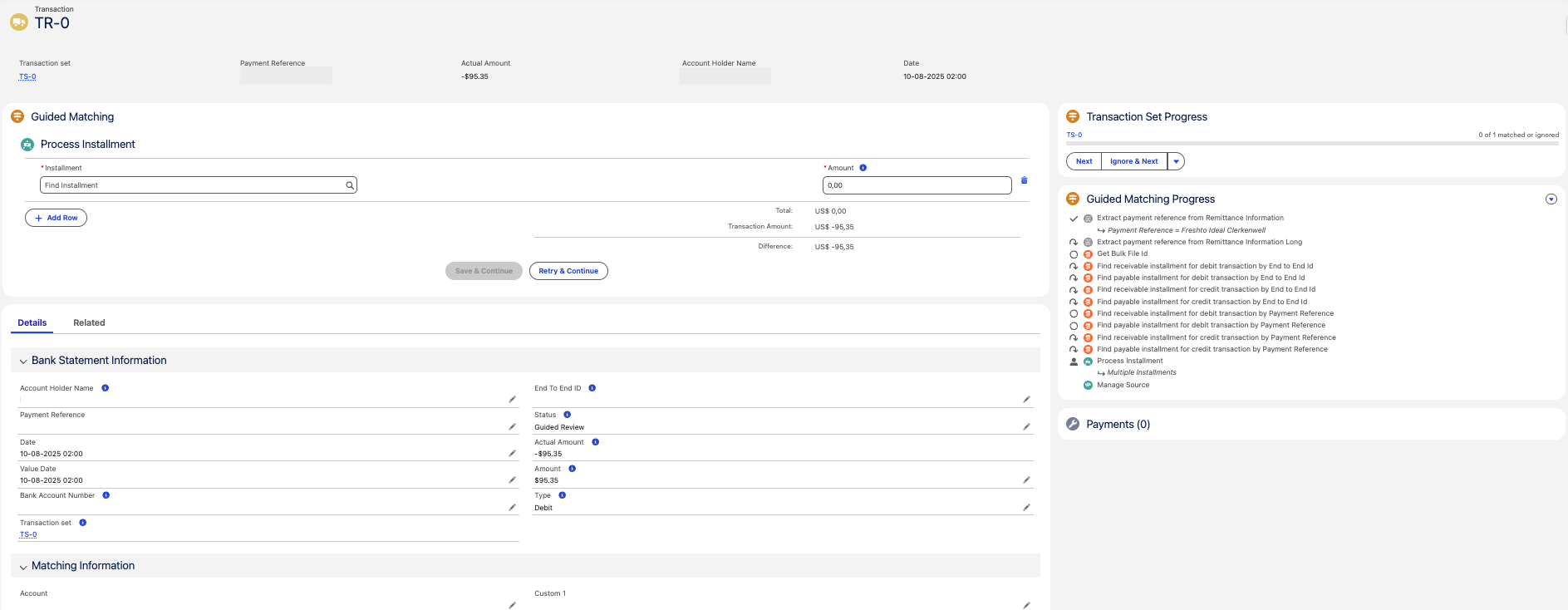API names: cpm__Transaction_Set__c, cpm__Transaction__c, cpm__Transaction_Sub_Element__c
The Transaction Set object represents an incoming bank file that has multiple statements or entries. The Transaction object represents an individual statement or entry from the imported file. Transaction sets and transactions have a Master-Detail relationship A Transaction record is linked to the Transaction Set record that groups all the Transaction records generated from the given file import.
Transactions in FinDock can be either automatically matched, manually matched or ignored. For more information on the matching of transactions and creating payments from them, see Processing bank statements.
The Transaction Sub Elements Object is only used for bank statements that contain sub-entries for a specific transaction entry. Transaction Sub Element records may be generated from camt.053 files, for example.
Fields on Transaction Set are primarily summary information about the uploaded file, such as counters (e.g. number of related Transactions records that are matched), balance and general information, like batch number. In addition, there are two related lists for matched and unmatched related Transaction records.

Having summary data for transaction sets is helpful in many ways, particularly when determining which transactions related to the set still need attention. Eight status counters to Transaction Set, pictured below.

An Apex job (via the FinDock Heart Beat), keeps the counters up to date. Counters are only updated on transaction records that have been modified since the last job run. In addition, you can manual trigger an update via the Transaction Set Progress component.

The greatest amount of information is stored on Transaction records. Most fields have transparent relations to the uploaded reconciliation file.

The table below highlights some of the fields that may be less obvious.
| Label | Type | Description |
|---|---|---|
| Actual Amount | Formula (Currency) | Positive (credit) or negative (debit) amount for the entry |
| Amount | Currency(16, 2) | Currency amount as reported on the entry |
| Date | Date/Time | The date when the bank booked the transaction entry on their customer's account |
| End To End ID | Text(255) | (SEPA only) A Id provided by the initiating party for the given entry to identify the transaction throughout the process |
| Payment Reference | Text(255) | Payment reference as reported on the individual entry |
| Remittance Information | Text(255) | Remittance information that may be truncated to fit the field |
| Remittance Information Long | Long Text Area(131072) | Full details from the statement remittance entries |
| Reported Payment Method | Text(255) | Payment method used for the transaction |
| Reported Payment Method Code | Text(255) | Code used by the given bank to indicate the specific payment method |
| Use Open Amount | Checkbox | Indicates if an overpaid amount should be applied to further installments as part of Guided Matching |
| Value Date | Date/Time | The date when the transaction value is available on the account |
The fields on Transaction Sub Element are quite limited as the records only capture information from details of a specific sub-entry. This includes the sub-element name, amount and whether the transaction entry is a credit or debit.